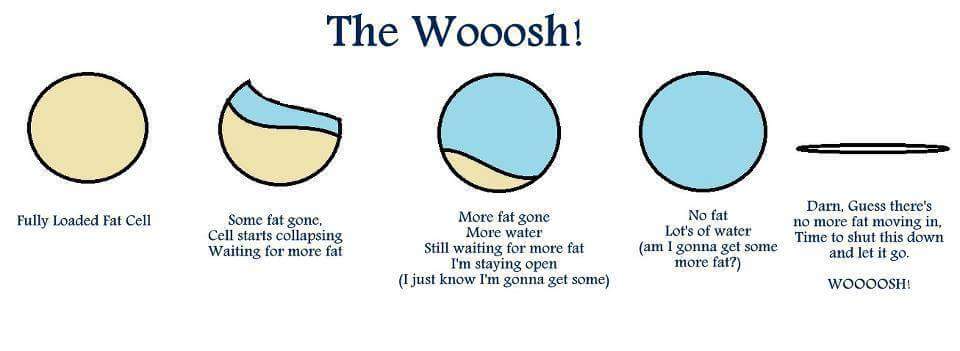Ah, that makes sense. It just suddenly occurred to me that it might be a good idea to understand where you were coming from. After all, we know what happens when we assume . . . 
I’ve just been watching a video by Ivor Cummins, in which he reiterates the apparent connection between the ability to make more adipocytes and insulin sensitivity. I think it makes sense to have a capacity to store a lot of fat. I mean, think of a bear preparing for hibernation; in such a case it would make a lot of sense for as much energy as possible to be stored as fat, to be doled out over the winter. We don’t hibernate, of course, but I can see an advantage to still being able to put on weight as preparation for the winter, when game is scarcer.
I wouldn’t expect fewer adipocytes to prevent weight gain, since we know weight gain is a function of diet quality. It seems more logical to expect fewer adipocytes to have a greater problem handling an excess of fat, which would lead to visceral fat, ectopic fat, and intramuscular fat, all of which cause serious problems. Having enough fat cells to handle a load of fat would logically have to be a healthier situation overall.
Remember that it’s not the fat itself that’s the problem, it’s more fat than the body can handle that causes insulin resistance and all the consequent damage. Dr. Lustig quotes estimates that as many as 20% of obese people are perfectly healthy, metabolically speaking. They don’t develop heart disease, atherosclerosis, diabetes, gout, etc. Lustig also cites figures that 30% of lean people are metabolically deranged, but don’t realize that fact, because they are thin (on the outside, at least). In the view stated by Ivor and others, such TOFI’s are ill because they are incapable of creating more adipocytes, therefore they have become insulin-resistant even without becoming overweight. They’ve already run out of places to store fat healthily.



